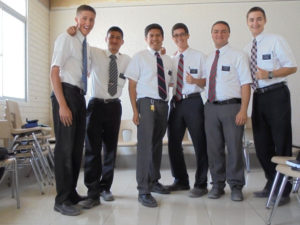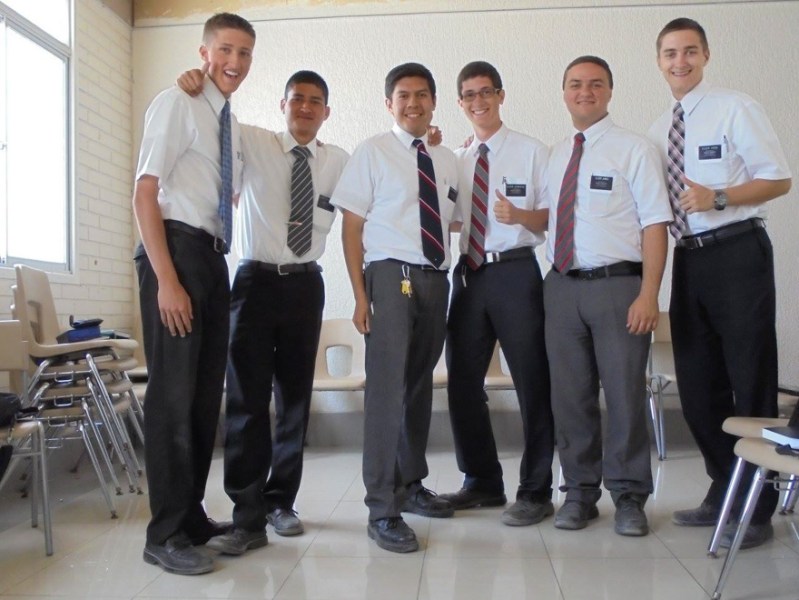Unlike most undergraduates, Andrew Gonzalez ’20 spent two years outside the classroom with a religious mission in Chile before coming to Stanford as a freshman. Gonzalez took two gap years to participate in the mission through the Mormon Church, helping to build infrastructure and proselytize to the local community. The Stanford Daily caught up with Gonzalez to discuss his motives for taking his gap years and the lessons he learned along the way.

The Stanford Daily (TSD): What did you do in your gap years?
Andrew Gonzalez (AG): Lots of things. Chile is an interesting country, they need a lot of service done down there – building houses, helping with infrastructure piping, things like that. We also did religious proselytizing, talking to people about their problems, their issues, seeing however we could help them emotionally, spiritually.
TSD: What is building a house like?
AG: Messy. [We would] lay down these metal rods, and then we would bend them into this shape. We slowly start to fill it with cement — we would mix the cement ourselves. Because they were cement, they didn’t taken long to build. It’s quite an easy process, [but you would] get cement all over your hands and clothes.
TSD: What was the most rewarding thing about your gap years?
AG: I learned a lot about different people and a lot of different cultures. Northern Chile is kind of like a hub of foreigners from different South American countries – Colombians, Peruvians, Bolivians. It was really cool to see all of those cultures mixed together. I met a lot of cool people and learned about their lives, which was always a fun experience.
TSD: What was the biggest lesson you learned from your gap years?
AG: Probably how to be patient, both with myself and with others. Things almost never go the way you want them to go, so that’s something you have to get used to.
TSD: How was the experience of going to college two years later than your peers from high school?
AG: I personally think it was really beneficial for me. It taught me a lot of self-discipline. [When I got to Stanford], I was able schedule myself well, take way more units probably than any of my friends ever had. I knew that I needed to stay on top of my homework. In high school, I totally procrastinated and never did homework and I would skate by in my classes with the bare minimum I could. After [the gap year] I learned to work hard, I was more focused on trying to get done what I needed to get done. Although I’m technically older than everyone in my class, it helped me stay focused.
TSD: Do you have any regrets about your two gap years?
AG: No, definitely not. I feel like most people would regret a gap year if they felt they hadn’t fulfilled what they went out to do, but a large part of my purpose for taking a gap year was self-development. I wasn’t trying to accomplish anything specific, besides trying to understand more what I wanted to do with my life, how I wanted to do it, what kind of person I wanted to be, and I think taking those gap years really helped me to understand that.
TSD: What was proselytizing like?
AG: People in South America are very receptive [to proselytizing], anyone who teaches some form of religion get a degree of respect, even if it is totally different from what they believe in.
TSD: How did that change the way you looked at what the “good life” means?
AG: It made me realize that you measure success based on your ability to achieve personal goals, not on goals set by society.
TSD: Do you have advice for any people going to college after a gap year?
AG: Have a plan. Taking a gap year can be very fun [if you] plan ahead, stay focused, find a club that does similar things and stay involved.
This interview has been lightly edited and condensed.
Contact Lark Wang at larkw ‘at’ stanford.edu.
